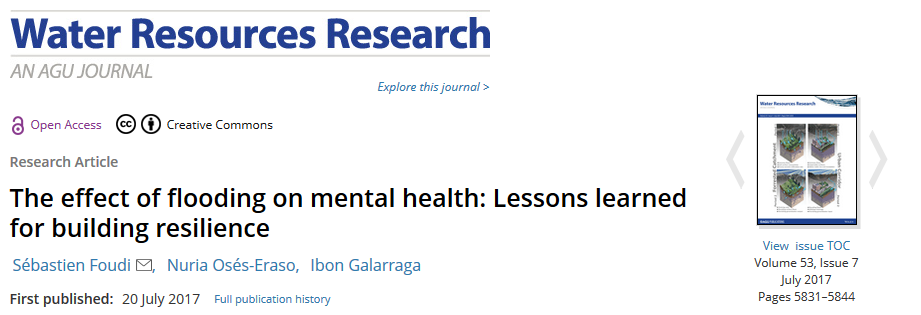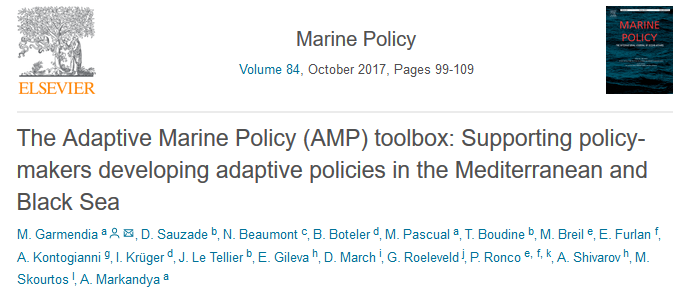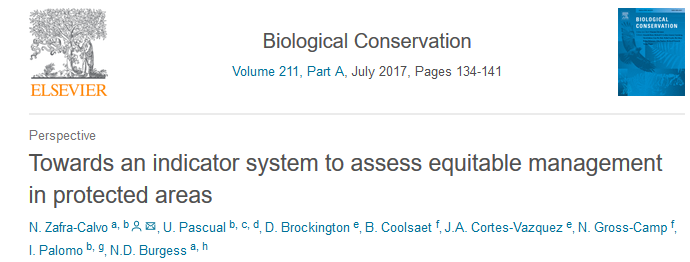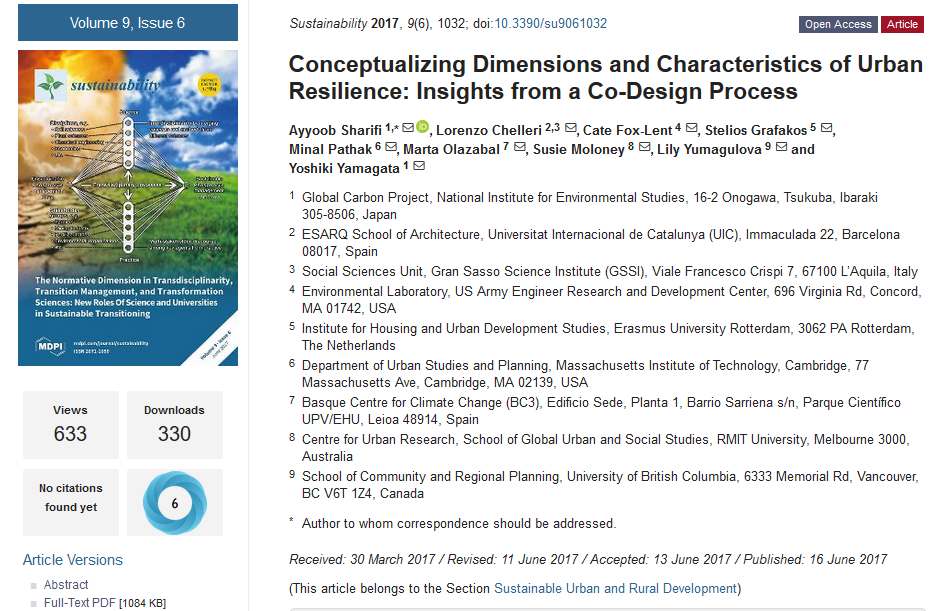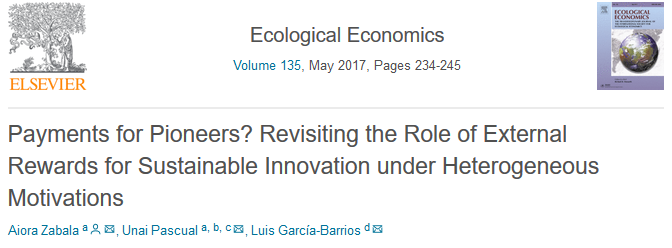Impact
July 24, 2017
Published by BC3Research Anil Markandya at July 24, 2017
Categories
This paper investigates the role of the Green Climate Fund (GCF) as a potential compensating measure for both adaptation and mitigation actions under a global climate regime. A dynamic climate-economy computable general equilibrium model (GDynEP) is developed by including both a monetary valuation of climate change damage costs and two alternative methods to determine the allocation of GCF resources among receiving countries and between adaptation and mitigation contributions.
July 20, 2017
Published by BC3Research Ibon Galarraga Sebastien Foudi at July 20, 2017
Categories
Risk management and climate adaptation literature focuses mainly on reducing the impacts of, exposure to, and vulnerability to extreme events such as floods and droughts. Posttraumatic stress disorder is one of the most important impacts related to these events, but also a relatively under-researched topic outside original psychopathological contexts. We conduct a survey to investigate the mental stress caused by floods.
Do you like it?
July 17, 2017
Published by BC3Research Marta Pascual Anil Markandya at July 17, 2017
Categories
Adaptive management is essential to the practical application of the Ecosystem-Based Approach (EBA). Despite there are frequent assertions that adaptive management is being used, evidence on its success is still limited. Indeed, it is difficult to bring the different elements of adaptive management together in a robust way and to choose the appropriate tools to do it.
Do you like it?
July 5, 2017
Published by BC3Research Unai Pascual Ignacio Palomo at July 5, 2017
Categories
Aichi Target 11 (AT11), adopted by 193 Parties to the Convention on Biological Diversity (CBD) in 2010, states that protected areas (PAs) must be equitably managed by 2020. However, significant challenges remain in terms of actual implementation of equitable management in PAs. These challenges include, among others, the lack of a standardized approach to assess and monitor social equity and the difficulty of reducing social equity to a series of metrics. This perspective addresses these challenges and it proposes a minimum set of ten indicators for assessing and monitoring the three dimensions of social equity in protected areas: recognition, procedure and distribution.
Do you like it?
June 30, 2017
Published by BC3Research María Victoria Román de Lara Iñaki Arto at June 30, 2017
Categories
The Copenhagen and Paris Agreements, in which developed countries committed to mobilise USD 100 billion a year by 2020, indicate that climate finance will continue to grow. Even though economic development is not the aim of climate finance, climate-related disbursements will generate an economic impact on recipient countries’ economies. This impact will also reach other countries (including climate finance donors) through induced international trade. In this paper, we apply a structural decomposition analysis to study why the economic impact of climate finance varies between countries.
Do you like it?
June 28, 2017
Published by BC3Research at June 28, 2017
Categories
Water quality in the Midwestern United States is threatened as a result of agricultural runoff. Based on self-reported data from a survey of farmers in Indiana, we aim to provide a better understanding of how awareness of water quality problems, farm-as-business attitudes, and stewardship attitudes are related to each other and willingness to improve water quality.
Do you like it?
June 21, 2017
Published by BC3Research Unai Pascual Ignacio Palomo at June 21, 2017
Categories
The connected nature of social-ecological systems has never been more apparent than in today's globalized world. The ecosystem service framework and associated ecosystem assessments aim to better inform the science–policy response to sustainability challenges. Such assessments, however, often overlook distant, diffuse and delayed impacts that are critical for global sustainability.
Do you like it?
June 16, 2017
Published by BC3Research Marta Olazabal at June 16, 2017
Categories
Resilience is a multi-faceted concept frequently used across a wide range of disciplines, practices, and sectors. There is a growing recognition of the utility of resilience as a bridging concept that can facilitate inter-and transdisciplinary approaches to tackle complexities inherent in decision making under conditions of risk and uncertainty.
Do you like it?
May 30, 2017
Published by BC3Research Unai Pascual at May 30, 2017
Categories
Acknowledging the diversity of preferences, goals and motivations of individuals is key to promote the effectiveness of incentive-based conservation interventions. This paper analyses the heterogeneity of motivations to adopt silvopastoral practices, a social-ecological innovation for soil conservation and carbon emission reduction. We use Q methodology to identify smallholders' views with regard to these practices in a community in the forest frontier in Chiapas (Mexico).
Do you like it?
May 30, 2017
Published by BC3Research Ferdinando Villa Stefano Balbi at May 30, 2017
Categories
Correct and reliable linkage of independently produced information is a requirement to enable sophisticated applications and processing workflows. These can ultimately help address the challenges posed by complex systems (such as socio-ecological systems), whose many components can only be described through independently developed data and model products.
Do you like it?


